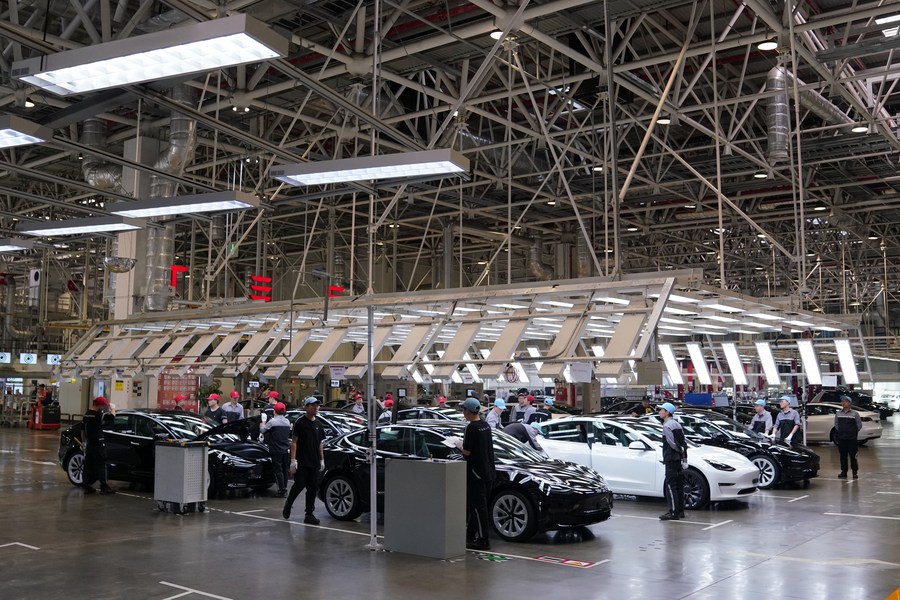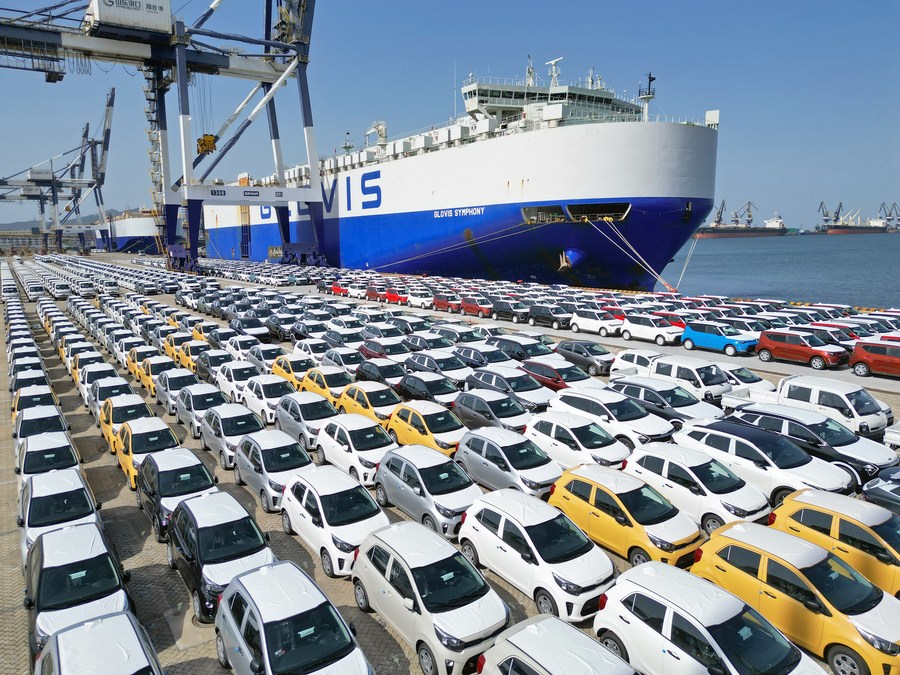来源: 类型:

Workers work at the Tesla Gigafactory in Shanghai, east China, May 12, 2023. (Xinhua/Ma Ning)
The first half of this year saw the number of newly established foreign-invested enterprises in China increase by a notable 35.7 percent to 24,000 despite slander and constraints from the United States, according to official data.
BEIJING, Aug. 17 (Xinhua) -- Washington's obsession with tarnishing China's reputation knows no bounds. U.S. President Joe Biden's recent assertion that the Chinese economy is a "ticking time bomb" serves as the latest example.
Biden said the Chinese economy has a dire future. But if the second-largest economy is bound to explode like a bomb, which is "not good" as the president suggested, then why has his government just imposed a new investment ban against China and is so desperate to restrain the Chinese economy?
The contradictive words and deeds have shown how America is paranoid about a greater China getting in the way of U.S. hegemony.
But smears and containment policies will not in the least reduce the Chinese market's appeal to global investors, who know well where they can benefit. The figures speak for themselves.
The first half of this year saw the number of newly established foreign-invested enterprises in China increase by a notable 35.7 percent to 24,000 despite slander and constraints from the United States, according to official data. Impressively, foreign investment in high-tech industries witnessed a 7.9 percent growth. Investment in China from France, Britain, Japan and Germany recorded substantial growth rates of 173.3 percent, 135.3 percent, 53 percent, and 14.2 percent respectively.
Though hobbled by growing global protectionism and COVID-19 pandemic in the past few years, China's foreign investment return rate has been 9.1 percent in the past five years, significantly higher than the approximately 3 percent of the United States and other emerging economies.
These all boost foreign investors' confidence in China, and in a free and globalized market, China should not be shut out by the United States.
As the major trading partner of more than 140 countries and regions, China boasts the most comprehensive range of industries, the most complete industrial system, and also the largest middle-class cohort in the world.
In recent years, China's contribution to the overall global economic growth has remained around 30 percent, and its share of the global economy accounts for 18 percent.
In the realm of market dynamics, an immutable truth prevails: Capital instinctively gravitates towards the vibrancy of a robust economy. And in this case, it flows to China.
Even the United States itself, which shifts import demands from China to other countries to suppress China, still remains connected with China in an indirect way since production in the countries is relying more on Chinese input than ever.
The falsehoods propagated by Washington, steeped in ideological agendas and political biases, are destined to crumble in the face of objective reality.
International institutions such as the World Bank and the International Monetary Fund (IMF) recognize China as a vital driving force behind global economic growth.

This aerial photo taken on July 5, 2023 shows cars to be loaded for export at Yantai Port, east China's Shangdong Province. (Photo by Tang Ke/Xinhua)
Amid an increasingly complex economic environment, China's gross domestic product (GDP) expanded by 5.5 percent compared to the corresponding period last year. The IMF shows China's economic growth ranks among the top among major economies.
As the world's largest economies, China and the United States bear the responsibility to cultivate global prosperity and stability. However, this vision remains elusive as China strengthens its policy support for foreign investment and endeavors to accommodate international firms, while Washington relentlessly pursues a de-risking agenda that fuels instability and uncertainty.
Washington needs to relinquish its fixation on maintaining hegemony and, instead, thoughtfully reassess its relationship with China. After all, an isolated and unstable world filled with hostility holds no winners.■



